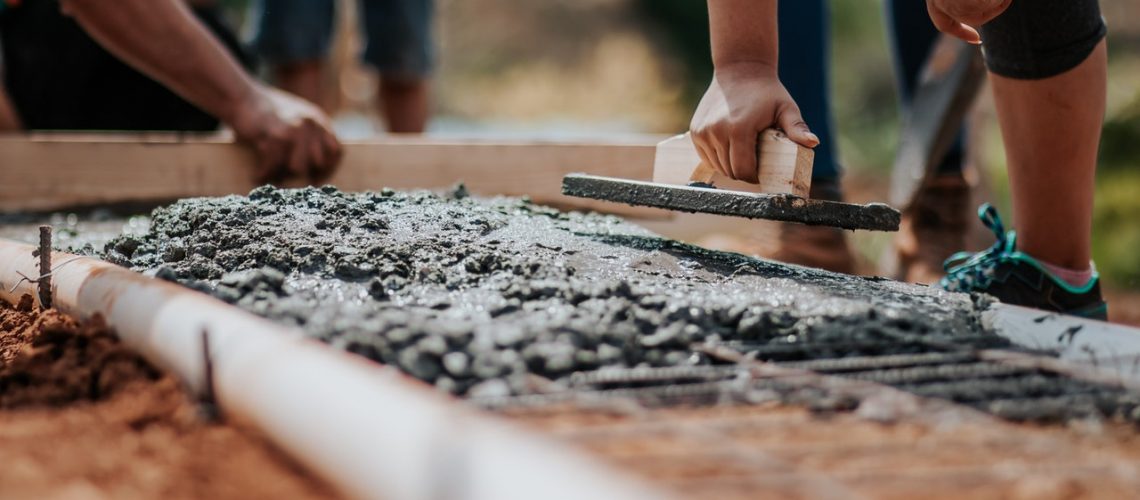Ethical construction is a hot topic within the industry at the moment, as builders, suppliers, and clients are realising the impact of demonstrating their social value and CSR efforts. With supply chains, manufacturers, and operations under scrutiny, ethical construction is becoming the far more appealing choice for domestic and corporate clients.
Being a revenue-rich industry, construction is often seen as an easy target for fraudulent, disruptive, and unethical activity. Unfortunately, construction companies can often be accused of cutting corners, causing environmental damage, or having a disregard for the noise and inconvenience they put on their neighbours and communities. The average person is acutely aware of the reputation of some construction companies, and that’s why ethical construction is becoming increasingly important.
In this article, we will cover what exactly makes an ethical construction company, the impact that has on growth, business, and reputation, and how these companies can strive to improve their social value.
What Makes Ethical Construction?
Ethical construction largely comes from relationships; be they with partners, developers, subcontractors, clients, colleagues, or the public. Nurturing each of these relationships, ensuring safety, society, and sustainability are paramount will not only maintain the reputation of construction companies, but significantly improve it.
Being an ethical construction company means prioritising your obligations and commitments to your clients, your profession, the environment, and the public. Whilst the environment is one of the biggest players in ethical construction, having a regard and respect for the public is tremendously important as well. Consider the disruption caused to the community when a construction company pulls up to work. Projects are not always for the benefit of the local area, and so keeping the community on side throughout the duration of the works will make each step of the operation seamless and therefore, more productive. What’s more, a construction company never goes unnoticed, so when it’s seen to have a positive social value it will be remembered by residents and businesses when they next have a project in the pipeline.

Why Is Ethical Good For Business?
Quality is directly impacted by the ethics of a business, no more so than within the construction industry. Ethical construction ensures the quality is noticeably better, meaning the company’s clients have more faith in them, investors have more confidence in them, and ultimately, beautiful and safe buildings are carefully and creatively constructed for the benefit of the clients, and the wider community.
Ethical construction companies who treat their employees well will welcome higher levels of productivity too, ultimately saving money and resulting in an even better outcome. Ethical business practices improve the transparency and trust of the company, which spreads into that of the industry, meaning ethical construction has the opportunity to become the norm.
Reputation is a huge factor for the success of construction companies, and being seen as an ethical company will naturally boost reputation. What’s equally important to note is that behaving in an unethical manner will not go unnoticed, and this will result in suppliers and subcontractors being less inclined to collaborate, and of course, clients and potential recruits going in another direction. Being ethical and showcasing social value immediately lets your clients and contractors know the way you work, building trust and allowing the relationship and project to progress smoothly.
Being an ethical construction company will also improve relationships with society in general, which will gradually improve the relationship between the public and the profession. What’s more, building a good reputation through ethical construction will naturally make the company well-known in the community, for all the right reasons, meaning we can begin to wave goodbye to all of the mistrust within the industry.
How To Be More Ethical
Being an ethical construction company requires a conscious effort, but one that will become second nature as it embeds itself into your company values. Start at the top by displaying an ethical leadership approach, and this will soon cascade down each and every employee. Caring for the environment should be a top priority, through the materials used, the supply chain chosen, the efforts to reduce noise pollution, and the contributions to improve the local environment. If a construction company displays their commitment to the environment, it seems more likely that they’ll care for their colleagues, their clients, and the community, showing a level of respect that will positively impact reputation.
Construction exists to improve the community through building new businesses, making homes more habitable, and giving a sense of renewal through renovation. Unfortunately, due to past unethical practices, it’s not often seen that way, but now we all have an opportunity to change the way the construction industry is seen, attracting new business and improving the reputation of the sector as a whole. Ethical operations come from an open door policy, displaying reviews and testimonials, internal audits and feedback sessions, and of course, external efforts to appease and improve the local community.
As an ethical construction company, you should focus on each community in which you work, giving back to charitable causes, social enterprises, and community projects. This is where Investors In Community comes in. Our platform costs only £10 per employee each year, and offers you and your team the opportunity to easily and effortlessly give back to the communities in which you pitch up to work. Through donations, volunteering, or fundraising, your ethical construction company will stand head and shoulders above the rest, showcasing your social value, winning the buy-in of the public, and piquing the interest of potential prospects.
Simply click here to request your free demo and discover just how easy it is to become the hot new topic in the neighbourhood.

